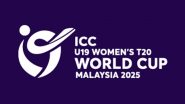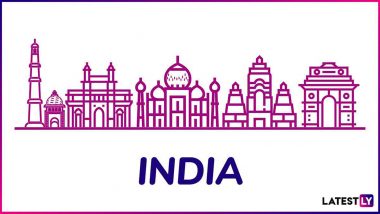New Delhi, Jan 25 (PTI) Sexual intercourse between husband and wife cannot be labelled rape and at worst such an act of wrongdoing can be called sexual abuse, and a wife cannot compel the prescription of a particular punishment against her husband to satisfy her ego, an intervenor said in the Delhi High Court on Tuesday.
Counsel for the intervenor NGO, Hriday, told the court, which is hearing a batch of petitions to criminalise marital rape, that in the marital sphere, sexual wrongdoing amounted to “sexual abuse” which was included under the definition of “cruelty” under section 3 of the Domestic Violence Act and indicated “any conduct of a sexual nature that abuses, humiliates, degrades or otherwise violates the dignity of woman”.
Also Read | Tripura Govt To Provide Free Advanced Medical Treatment to People of the State, Says CM Biplab Kumar Deb.
Counsel R K Kapoor, representing Hriday, emphasized that the marital rape exception aimed to “protect the institution of marriage” and was not arbitrary or in violation of Articles 14, 15 or 21 of the Constitution.
“Parliament does not say that such an act is not sexual abuse (any conduct of a sexual nature) but has taken it on a different plane to save the institution of marriage.
Also Read | Uttar Pradesh Assembly Elections 2022: Bulandshahr Riot Accused Yogesh Raj's Nomination Rejected.
"Wife cannot compel the Parliament to prescribe a particular punishment against the husband to satisfy her ego. The only difference in Section 376 IPC and Domestic Violence Act is the quantum of punishment, though the act of sexual abuse in both the cases has been deprecated,” the lawyer stated.
“Sexual intercourse between husband and wife in marital relationship cannot be a labelled as rape and at the worst it can be called a sexual abuse only, which would be clear from the definition of cruelty as defined under Domestic Violence Act 2005,” he submitted.
The bench of Justices Rajiv Shakdher and C Hari Shankar is hearing PILs filed by NGOs RIT Foundation, All India Democratic Women's Association, a man and a woman seeking striking down of the exception granted to husbands under the Indian rape law.
The petitioners have challenged the Constitutionality of the marital rape exception under section 375 IPC (rape) on the ground that it discriminated against married women who are sexually assaulted by their husbands.
In an earlier hearing, the court had questioned that when the rape law granted no exemption in case of forced intercourse with a sex worker who chooses to withdraw consent at a belated stage, why a wife should be “less empowered”.
Kapoor submitted that any comparison between the two was an “insult to the institution of marriage” and there cannot be any comparison between them as there is no emotional relationship in the case of a sex worker.
“A perpetrator cannot claim restitution of conjugal rights against sex worker and correspondingly sex worker cannot claim regular maintenance from a perpetrator. There is no emotional relationship between sex worker and the stranger. The relationship between husband and wife is a package of a large number of mutual rights and obligations which are social, physiological, religious, economic etc. It cannot be limited to just one event of consent for sexual relationship,” he said.
He further said that the offences concerning marriage stand on a different footing and the wisdom of the Parliament in retaining the marital rape exception should not be doubted when there are other sufficient provisions in the IPC and other statutes to redress the grievances of a woman.
The lawyer also claimed that the legislature has classified several types of sexual offences under the IPC on the basis of a “number of incidental and collateral circumstances, the relationship between the parties and the age of the woman”, and the retention of the marital rape exception which is based on a “reasonable classification” cannot be found fault with.
He also said that there are limitations on the powers of the court in matters of judicial review and when legislation has given protection to the citizen in the form of the marital rape exception, the court cannot take it away and enact a new offence.
The court can only make a recommendation to the Parliament if some changes are required, he said.
Senior advocates Rebecca John and Rajshekhar Rao, who were earlier appointed as amicus curiae, have contended that the marital rape exception is unconstitutional and ought to be struck down.
The Delhi government has told the court that marital rape was already covered as a "crime of cruelty" under the IPC.
The Centre has informed that it was considering a “constructive approach” to the issue and holding consultations with the stakeholders.
The central government, in its earlier affidavit filed in the case, has said that marital rape cannot be made a criminal offence as it could become a phenomenon that may destabilise the institution of marriage and an easy tool for harassing the husbands.
The hearing in the case will continue on January 27.
(This is an unedited and auto-generated story from Syndicated News feed, LatestLY Staff may not have modified or edited the content body)













 Quickly
Quickly

















